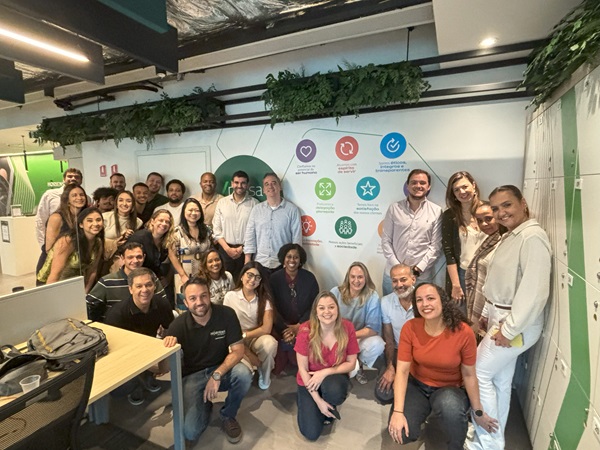How to connect – truly – with your team?

Written by: Fernanda Antonelli - 12/04/2021
Nowadays, counting on humanized leaders is one of the main challenges to the Companies and to become one of them is one of the greatest challenges to leaders, no doubt about that. It may seem to be straightforward, but it is necessary to maintain oneself attentive and open to provide room for this.
We already know that leaders are of fundamental importance for the happiness and satisfaction of his leaded ones, but, during pandemics times, the relationship between the leader and the leaded personnel has a still more relevant role.
The recently carried out Trust Barometer’s research by Edelman shows that trusting in what private Companies state was never so important than right now and, when we mention Companies, we are also referring to their leaders, right?
The conducted research from October to November of 2020 with thousands of interviewed persons in 28 Countries, including Brazil, has revealed that, not only the Companies are the most reliable institutions amongst the four studied types (Companies, government, NGOs and media), but also is the only one considered as being ethical and competent, with 61% of trust.
If the attributed confidence to the Companies and to their leaders is high, so is the challenge. One of the subjects which catches attention nowadays refers to the mental health of the workers. In Brazil, the Country which has the highest rate of anxiety in the world, pursuant the World Health Organization – WHO, the health issues storm out as the highest sources of psychological stress and uneasiness.
The Mental Health in Focus’ research, produced by Vittude in partnership with Opinion Box, with more than 2.000 Brazilian workers of various segments, shows that 41% of the participants feel, for instance, “an intense fear that someone close gets sick or dies”.
Whereas we talk about productivity, the most mentioned subjects as obstacles during the day’s work are the loss of concentration and focus (32%) and the loss of creativity (22%). The dialogue between a leader and his leaded personnel is also a point of attention, with only 33% feeling comfortable in getting something out of their chest to mention to their direct leaders.
The humanized leadership in practice
But, how to exercise a humanized and a participative leadership within this long-lasting uncertainty scenario where we live today?
The first point is to acknowledge that, to be present in the life of whoever you lead is not something physical, but rather to actually connect yourself with another person. Where this connection does not take place, a leader can fail to integrate, to motivate and to make the difference, not only for the Company’s results and environment, but rather in the life of the leaded persons.
Another important aspect is being sufficiently mature to abandon a scant integrative view (where the same is there) for a more collectivity-oriented view, appreciating the diversity, the collaboration and the unlimited possibilities which can be crossed.
The strengthening of openings for dialogues may be considered simple and basic, but it becomes increasingly clear that it is of fundamental importance to maintain a humanized environment. More than that: such dialogue must not be restricted to professional themes. To talk about the development, the purpose, the conciliations of the professional and the personal routine, fears and uneasiness, besides the achievements and the surpassing, will make the whole difference.
Last, but not least, setting the example of healthy behaviors is necessary. Telling to your team how you are facing this scenario within we live, about using the lunch time of another day to cook with the family, or yet your strategies to maintain the moments easy and daily can be decisive to encourage healthy attitudes in the routine of the people you are leading.
Leaders also need to be cared
But it is necessary to emphasize an important aspect of all this: as motivation dissemination agents, the humanized leaders will only manage to offer their best for their teams, provided they are well.
For this reason, providing attention to you own bodily and mental health is the first step. This is an act of self-responsibility, but the Companies can also act in such direction and proactively, working in partnership with their leaders and offering support and tools which backs their evolution.
After all, more than never, the emotional adaptability and intelligence are our great allies, as professionals and citizens, to find solutions which take us towards the right direction.









